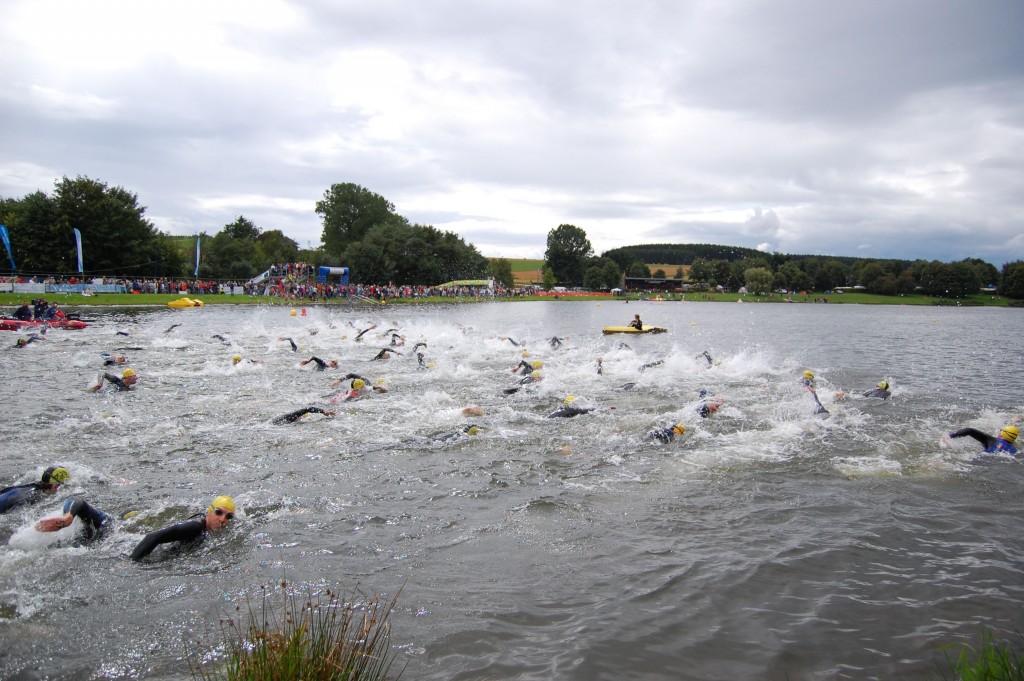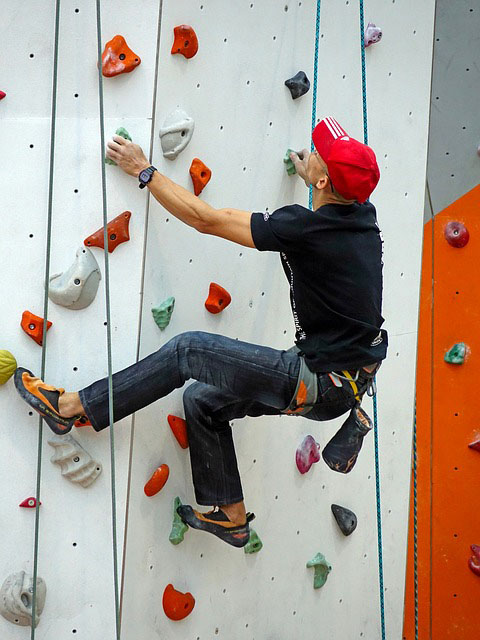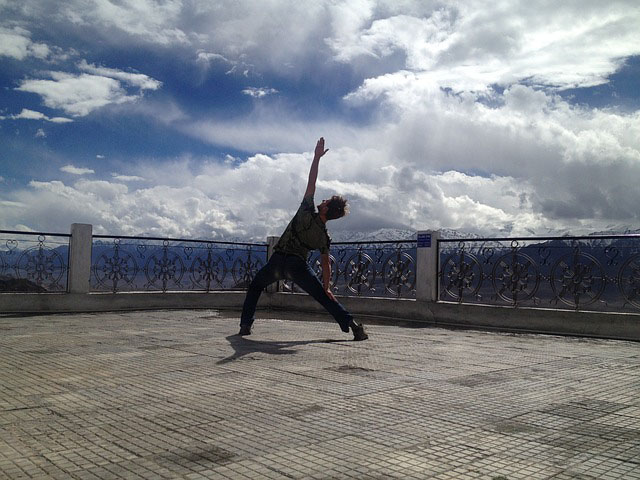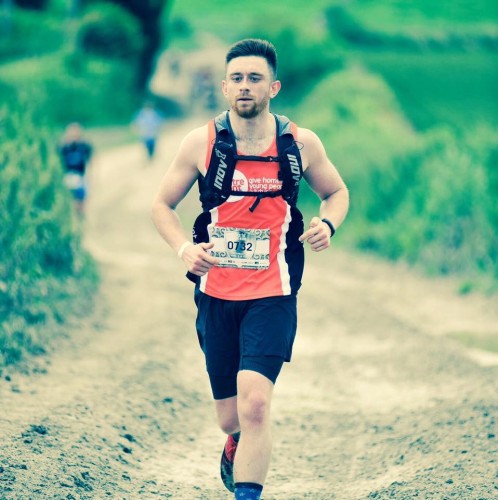1. Wild swimming
Wild swimming is, as the name suggests, swimming in the wild – in the abundance of rivers and lakes that our country has to offer. People are sometimes discouraged by what they deem to be dirty water, but with hundreds of certified and clean, wild swim-approved locations up and down the country, there’s no excuse not to take a dip with the fishes. Swimming in rivers and lakes provides the same, full-bodied, aerobic and anaerobic workout as conventional swimming, but with the added challenge of traversing natural obstacles such as fallen branches, rocks and currents. Much like trail running is a great way to avoid the repetitiveness that road running can bring, wild swimming frees you from screaming kids and revealing Speedos, while providing the same low-impact strength and endurance benefits. For safe and accessible wild swim locations near you, visit wildswimming.co.uk.
2. Rock climbing
You don’t have to travel to Yosemite National Park to reap the benefits that rock climbing can bring. Contrary to what you may think, rock climbing is accessible to everyone. If you can get over the heights involved and learn to trust the equipment, you’re halfway there. As a running aid, climbing is the perfect core strength building exercise. The stretching and pulling involved works your stabilising back and stomach muscles, both of which are essential to maintaining good technique and thus running efficiency, even when your legs begin to tire. Hauling your bodyweight around will also greatly improve upper body strength; adding power and stability to your running style. Visit ukclimbing.com for a climbing wall near you.
3. Strength training
Many runners fear the gym; considering it the domain of the bulky bodybuilder. However, strength training does not have to go hand in hand with adding unwanted size. In fact, to become a stronger, faster and less injury-prone runner, strength training is essential. Beginning with bodyweight and gradually adding weight, fundamental motions such as squats and deadlifts will help forge legs and core like granite – perfect for powering up hills and delaying fatigue. For posture-improving upper body work, barbell exercises such as military presses and rows will improve your strength, prevent rounded shoulders and, ultimately, enable you to maintain an upright position for longer – increasing cardiovascular efficiency.Isolated core work is also key. TABATA-style exercises (eight sets of 20 seconds intense work, followed by 10 seconds rest) are a great way to improve speed endurance and torch fat. Mountain climbers or bicycle crunches work your lungs and your abs.
4. Broga
Founded by former American Football star and heavyweight bodybuilding champion, Matt Miller, Broga is ‘a trademark signature yoga practice designed for a male sensibility,’ otherwise known as bloke-friendly yoga. Yoga has long been known to greatly improve flexibility, mobility, flexibility and strength. For the runner, there are few better options when it comes to reducing injury and maintaining good posture. Broga’s appeal is in the fact that it was tailor made for the cumbersome man, rather than the stereotypically dainty clientele of most yoga classes. Visit broga.uk.com to find out more.
5. Kayaking
You only have to look at a professional kayaker to realise the upper body strength benefits that kayaking can bring. Strong back, shoulders, arms and chest will add power to your arm drive and sprint finish. More significant, though, are the core strength and stability improvements that regular kayaking will bring. When using proper form, the core is key and when translated to running, this means the ability to maintain a good technique for the duration of a race. Visit canoekayak.co.uk for information on lessons, equipment, places to kayak and more.
6. Boxing
‘Roadwork’, as boxers refer to running, is a staple of boxing training. Likewise, boxing can play a key role in getting you fighting fit. Fear not though, you don’t have to get your face bloodied to experience the benefits that it can bring. For a start, the skipping rope is the boxer’s best friend, because skipping is almost unrivaled in its ability to increase endurance and coordination. It provides a full-body workout, while greatly improving speed, agility and foot speed. Aside from skipping, the core work involved in sparring and bag work will work wonders for your running posture and efficiency.









